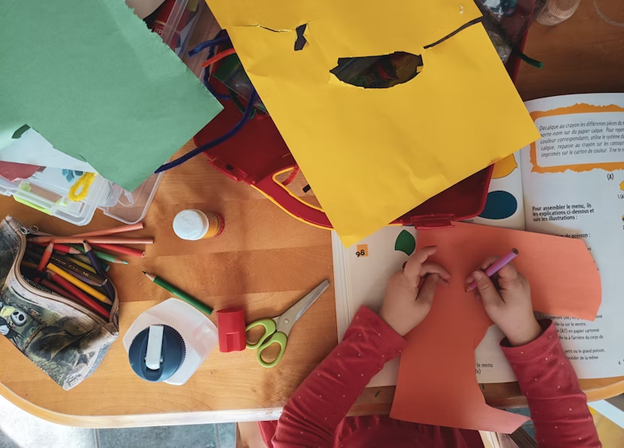Water is essential for all life on Earth, and our children must understand the importance of water conservation. Teaching kids about the value of water can help them develop a sense of responsibility towards nature, while also giving them an appreciation for how much they have access to it. Not only will this knowledge benefit them in their day-to-day lives, but it could also shape their future decisions when it comes to protecting our planet’s resources. We’ll discuss six methods you can use to teach your kids about the importance of water and how they can use that knowledge in their daily lives.
Table of Contents
Why Teaching Them about Water Is Crucial
Not only does water make up 70% of the human body, but it’s also essential for all physical and biological processes. By teaching them about the importance of water we can help our children understand why it is so vital that they use resources responsibly. Water plays an important role in keeping us healthy – from providing us with clean drinking water to helping us grow food and sustaining whole ecosystems – so kids must learn how to use this resource sustainably. The video lessons from Generation Genius about water and ecosystems can be a great starting point. Ecosystems and food webs rely heavily on water, so teaching kids about this concept is key to developing an understanding of how they can protect the environment.
How Kids Can Use this Knowledge in Their Lives
There are several ways that kids can make use of their knowledge about water when it comes to their day-to-day lives. First and foremost, they should be encouraged to conserve wherever possible by turning off the tap when brushing their teeth or taking shorter showers than normal. Additionally, kids can take what they’ve learned and put it into action by getting involved in local cleanup projects or lobbying for changes that will help protect our planet’s waters. By engaging in these activities, they’ll not only feel empowered but also understand the importance of using resources responsibly.
1. Interactive Lessons
An interactive lesson about water can help your kids make the connection between what they’re learning and how it affects their own lives. Try out a few online lessons or have them create their own ‘water wheel’ to demonstrate how water cycles through the environment. You can also use games to teach them about the importance of water conservation and its impact on our environment. Additionally, make sure to emphasize the role of water in keeping us healthy.
2. Field Trips and Community Service
Nothing gets kids more invested than being out in the field or doing something hands-on. Take them on a field trip to a local park, lake, or river and explain how different organisms rely on water for survival – you can even organize something in your own garden. You can also look into ways they can give back to their community by volunteering in organizations that protect our watersheds, such as beach clean-ups or planting trees near rivers. Some of these activities can be done while social distancing too. Keep in mind that sometimes, even a small act can make a big impact on our environment.
3. Art Projects
Any type of project is an excellent way to get your kids to think more deeply about the importance of water and how it impacts our lives. Have them create collages, drawings, or paintings that represent different aspects of the water cycle and its importance in nature. This can also include writing stories or poems about the world’s most precious resource. In some schools, they may even have the opportunity to create installations or sculptures that portray their understanding of water conservation. Additionally, art projects can be a great way to explore the history of human’s relationship with water. By looking at artwork from different periods and cultures, your kids can gain a better appreciation for how water has been used in past societies. Not only will this increase their understanding of the importance of water, but also help them appreciate its value as a resource.
4. Reading and Discussion
Encourage your kids to read books and articles about water conservation and its impact on our environment. Ask them questions afterward to get them thinking more critically, such as what other areas require water protection. Or, why is fresh drinking water so important? You can also use educational videos, documentaries, and podcasts to help deepen the kids’ understanding of the topic – this will help foster their interest in the issue. For example, the National Geographic Kids channel has an entire section devoted to water conservation.
5. Make a Water Conservation Plan
Help your kids come up with a plan for conserving water in their daily lives. Have them consider what activities use the most water, like showering or washing dishes, and how they can reduce their consumption of this resource. Discuss simple ways to cut back on water usage such as using shorter showers, turning off the tap while brushing teeth, collecting rainwater, and reusing bath water to flush the toilet. This will help turn knowledge into actionable steps that kids can take to protect our environment.
6. Teach Them about Marine Life
Explain to your kids the importance of water in preserving marine life. Have them learn about different species that depend on clean and healthy water ecosystems, such as coral reefs. They might even have the chance to virtually explore a reef or watch videos about these habitats online. This will teach them about how humans can also play an active role in protecting our oceans by reducing plastic waste and conserving energy usage. You might even get your kids interested in joining an ocean conservation club to get more involved and make a real difference.
Teaching your kids about the importance of water is a great way to instill in them an appreciation for our planet and its environment. With this knowledge, they can learn to be responsible citizens so that future generations may enjoy healthy oceans and clean drinking water as much as we do now. So don’t forget to include lessons about the importance of water in your child’s education! It just might make all the difference.


